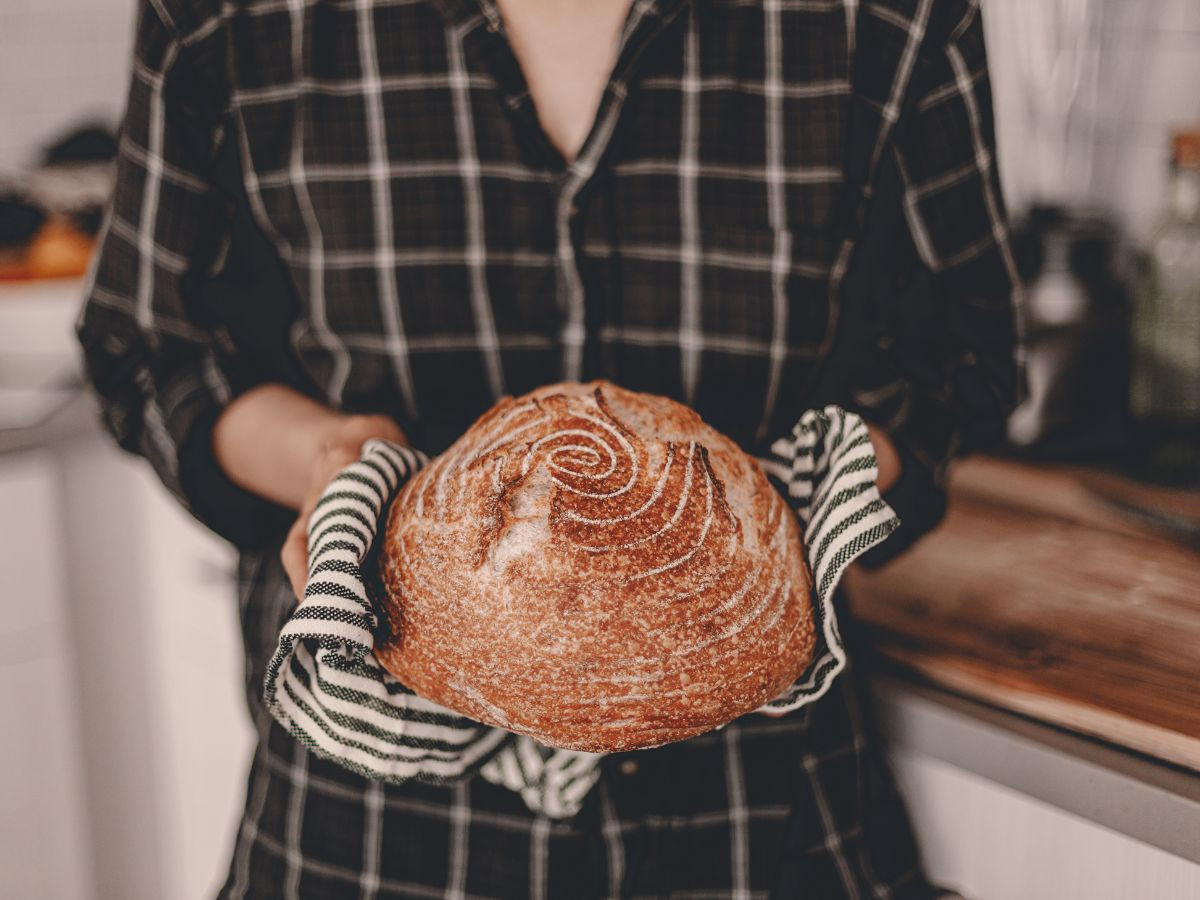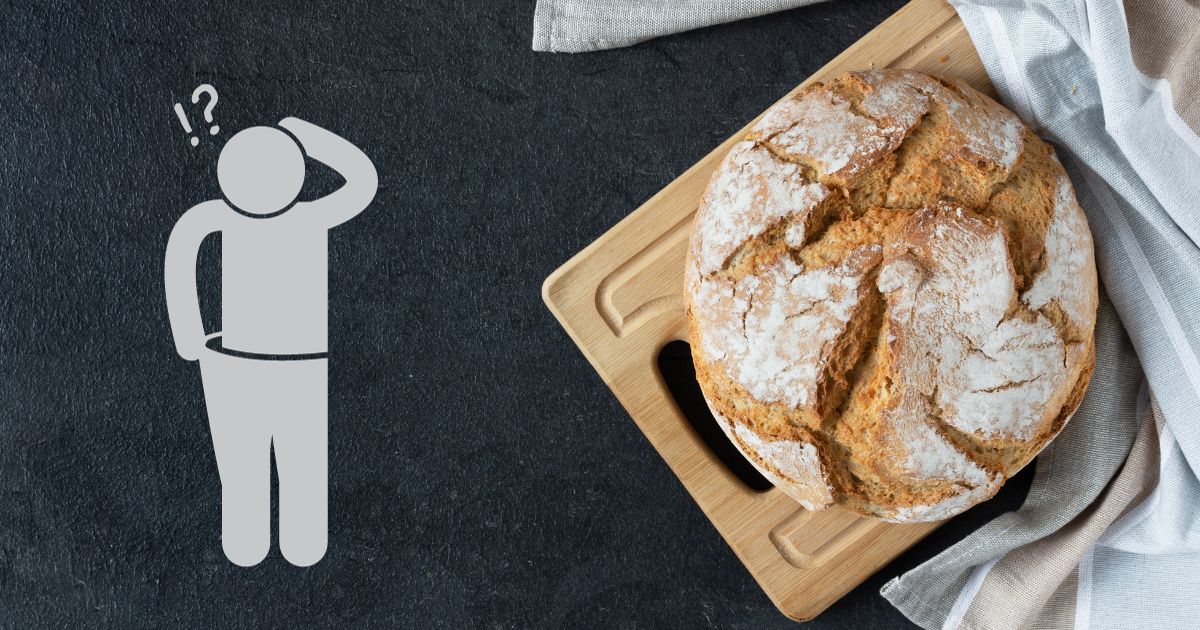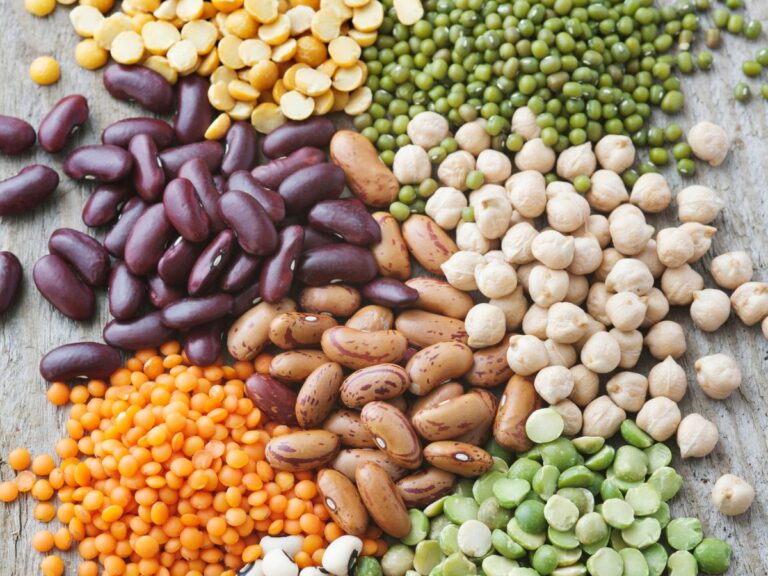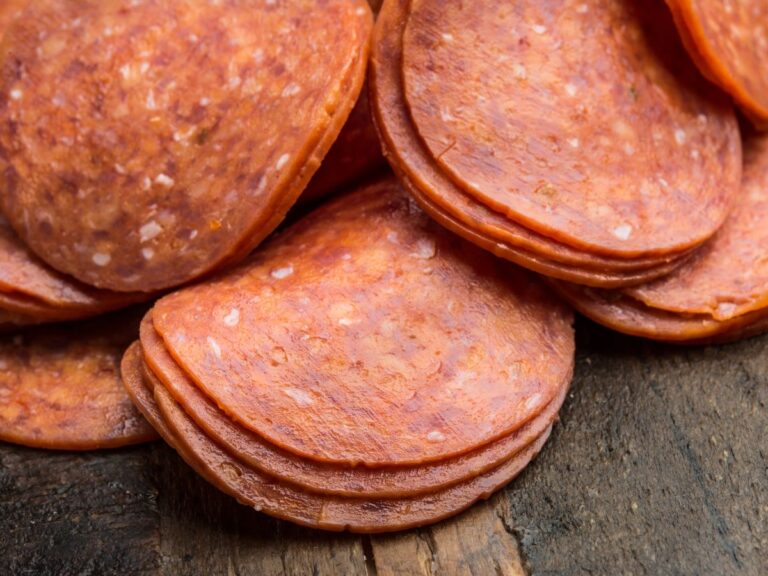Is it Possible To Lose Weight Eating Sourdough Bread? Healthy Bread Benefits
Carbs have gotten a bad reputation over the past few years but I’m here to stop the Madness! Can sourdough bread actually be good for weight loss? With so many of us trying to eat healthier without giving up on taste, it’s important to understand how this delicious bread fits into a balanced diet.

As a professional chef, I’ve always had a special place in my heart (and kitchen) for bread, especially sourdough.
With an increasing number of people seeking healthier diet options and the ever-present question of how genuine sourdough bread fits into this, I feel it’s crucial to explore whether sourdough bread, with its unique attributes, can benefit those looking to manage their weight.
I remember the first time I baked a fresh dutch oven sourdough loaf – the aroma, the texture, it was like magic coming out of the oven.
I will explore a question many of my health-conscious friends and clients often ask: Is sourdough bread good for weight loss?
It’s a topic close to my heart, combining- my love for delicious, healthy eating with practical nutrition.
Table of Contents
Is Sourdough Bread Good For Weight Loss?
This isn’t just any bread; sourdough stands out because of its unique fermentation process. This age-old method, which uses natural yeast and bacteria, gives it that distinctive tangy flavor and affects its nutritional makeup.
A Nutritional Breakdown
Today, we’re slicing into the heart of sourdough and its nutritional content. It’s not just about the tangy taste and the irresistible aroma that fills your kitchen; there’s more beneath that crusty surface.
Calories and Carbs: Let’s face it, bread is not exactly low-caloriegives it that distinctive tangy flavor and, and sourdough is no exception. A typical slice packs about the same caloric punch as most other breads.
Fiber: Sourdough does a little better in the fiber department. You get a decent amount of fiber thanks to the whole grains often used in artisanal loaves. This is good for your gut and keeping you full longer – a plus in the weight management playbook!
Protein: Here’s a surprise – sourdough can be a modest protein source. Not saying you should swap out your chicken breast for a loaf, but every bit counts.
Vitamins and Minerals: Depending on the flour used, sourdough can offer a range of B vitamins and minerals like iron and selenium.
Lower in Sugar: One thing I love about sourdough is that it’s typically lower in sugar compared to many commercial breads.
While sourdough has these nutritional perks, it’s still bread at the end of the day. Moderation is key, especially if you’re trying to manage your weight.
But don’t let that discourage you – a balanced, healthy diet still can include a slice or two of this fermented delight. After all, what’s a soup without a piece of sourdough to dunk in it?
Sourdough Fermentation is Your Gut’s Best Friend

Let’s knead into the fermentation process of sourdough and why your gut might just thank you for that extra slice of sourdough toast afterwards.
Magic of Fermentation: Sourdough isn’t just bread; it’s a science experiment in your kitchen. The fermentation process, powered by natural yeast and good bacteria, breaks down parts of the grain. This gives sourdough its signature tang and makes it easier to digest.
Probiotic-like Benefits: While the baking process says goodbye to most live bacteria (sorry, they don’t survive the heat of your oven), the effects linger. These beneficial bacteria leave behind changes in the dough that can benefit your gut health.
Friendlier to the Tummy: Sourdough is often more tolerable than standard loaves for those with sensitive stomachs. The fermentation process reduces the amount of gluten (though it’s not gluten-free, sorry!). So, your tummy might handle sourdough better than other breads.
Better Nutrient Absorption: Here’s a bonus – the fermentation process in sourdough can help reduce phytate levels, which helps with the absorption of minerals.
In a nutshell, the fermentation process turns a simple dough into a complex, gut-friendly, and (let’s face it) delicious food.
It’s no magic pill for weight loss, but its digestive benefits are a solid reason to include it in a balanced diet.
Sourdough and the Glycemic Index

Things might get tricky when you start building a sandwich resembling a skyscraperLet’s slice into the glycemic index (GI) world of brown bread and see where our beloved sourdough stands.
Glycemic What? First, the Glycemic Index is like a scale for your food, especially carbs, showing how quickly they raise blood sugar levels. Low GI foods are the slow burners, giving you a gradual rise in energy – think marathon, not sprint.
Sourdough’s GI Score: Here’s the good news – sourdough typically has a lower GI than many other types of bread. This means it’s less likely to spike your blood sugar levels. That’s right, sourdough is not just about good taste; it’s about keeping your energy levels in check too.
Why It Matters: For anyone watching their weight or managing conditions like diabetes, understanding GI can be a game-changer. Foods with lower GI values can help control appetite and delay hunger cues, which is great news if you avoid raiding the fridge every couple of hours.
It’s All About Balance: Don’t get too carried away. Because ,sourdough has a lower GI doesn’t mean you should build a fort out of sourdough loaves. It’s still about balance and moderation in your diet.
Fitting Sourdough into Your Weight Loss Journey

Let’s talk about incorporating sourdough bread into a weight-loss diet without feeling like you’re betraying your health goals.
Portion Control is Key: Remember, moderation is the secret sauce in any diet. Enjoying a slice (or two, let’s be real) of sourdough is fine. Things might get tricky when you start building a sandwich resembling a skyscraper.
Bread Myths, Busted: Bread has been unfairly demonized in the weight loss world. But here’s the deal – it’s not the bread itself, but how much and what type you eat. With its lower GI and beneficial nutrients, Sourdough can be a smarter choice.
Balance Your Plate: Pair that delicious sourdough slice with balanced companions – think proteins like grilled chicken or salmon and plenty of veggies.
Healthy Toppings: Get creative with toppings. Avocado, hummus, or a slice of tomato and mozzarella can turn a simple sourdough into a nutritious and satisfying mini-meal.
Listen to Your Body: Everyone’s body responds differently to different foods. Pay attention to how your body feels after eating sourdough.
It’s about enjoying the flavors while being mindful of the bigger picture of your diet. Remember, losing weight doesn’t mean losing the joy of eating good food!
What Nutritionists Say About Sourdough and Weight Loss

It’s time to sprinkle in some expert wisdom and dig into what the nutrition gurus say about the benefits of sourdough bread in the context of weight loss.
Nutritionist Nods: Many nutritionists give a thumbs up to sourdough as part of a balanced diet. Its lower GI and the fermentation process make it a more favorable option than many other breads.
Research Revelations: Studies suggest that the unique makeup of sourdough can help with better blood sugar control and improved satiety. This means you might feel full longer after a sourdough sandwich compared to a white-bread one.
Not a Magic Loaf: Nutritionists emphasize that it should be part of a varied and balanced diet. Eating sourdough exclusively won’t shed the pounds, but it can be a healthier component of your overall food intake.
Mindful Munching: Experts often suggest paying attention to what you’re piling on your sourdough. Slathering heaps of butter or jam might overshadow the benefits. Think lean proteins, healthy fats, and lots of veggies.
Customizable to Your Diet: Whether you’re a carb-counter, a fiber-finder, or a gluten-reducer, sourdough can be tailored to fit various dietary needs. It’s about finding the right balance for your body and goals.
The experts agree that sourdough can be a fantastic addition to a weight-conscious diet, provided it’s part of a bigger picture of healthy, mindful eating.
Sourdough, Weight Loss, and You

We’ve kneaded through the doughy details, and now it’s time to round up our sourdough and weight loss adventure.
Balanced Bread-ing: Sourdough bread can be part of a weight loss diet. Its lower GI, potential benefits for gut health, and nutrient content give it an edge over many other breads.
Moderation, Not Deprivation: Remember, it’s not about cutting out bread (phew!), but about how you include it in your diet. When consumed in moderation and paired with a balanced diet, Sourdough can be a healthy choice.
Personalize Your Plate: Everyone’s body is unique, and so is everyone’s reaction to different foods. Experiment with sourdough and see how your body responds.
Enjoy the Journey: Most importantly, enjoy your food! Sourdough bread is a culinary delight – its unique taste and texture are worth savoring, even on a weight loss journey.
Whole Grain Flour or Whole Wheat Flour?
Tips for Choosing and Enjoying Sourdough
Before you dash off to the bakery (or your own oven), here are some extra morsels of advice:
Quality Counts: Look for authentic sourdough. True sourdough contains only refined white flour, water, salt, and a starter. No added yeast or preservatives.
Whole Grain Goodness: Opt for sourdough from whole grains for an extra fiber boost.
Savvy Toppings: Get creative and health-conscious with your toppings. Think smashed avocado, tomato slices, or almond butter.
Home Baking: Try baking your own if you’re up for it. It’s rewarding, and you control what goes into your loaf.
Pair Wisely: Balance your sourdough slice with proteins, healthy fats, and veggies for a well-rounded meal.
Summary Conclusion: Is Sourdough Bread Good for Weight Loss?
In addressing the burning question, Can Sourdough bread actually be good for weight loss?, our exploration reveals a hopeful answer. Yes, sourdough bread can be a beneficial part of a weight loss diet.
This is thanks to its unique fermentation process, which gives white sourdough bread its distinctive tangy flavor and makes it a potentially healthier choice compared to other breads.
The fermentation process in sourdough leads to a lower glycemic index, meaning it doesn’t spike blood sugar levels as quickly as other breads might. This can be particularly beneficial for weight management, as foods with a lower glycemic index can help control hunger and maintain steady energy and stable blood sugar levels.
Additionally, fermentation can improve the digestibility of whole-grain sourdough bread and potentially aid in gut health, which is an important factor in overall wellness and weight management.
However, it’s crucial to remember that sourdough, like any other food, should be consumed in moderation. It’s part of a larger puzzle of a balanced, nutritious diet.
Sourdough’s health benefits, however, are best enjoyed as part of a meal plan that includes a variety of foods, focusing on portion control, balanced nutrients, and overall calorie management.
When enjoyed sensibly as part of a balanced diet, sourdough bread can be a favorable choice for those looking to manage their weight. It offers nutritional advantages while satisfying the palate – a rare and valuable combination in food and nutrition.
FAQ and Additional Information
Can I eat sourdough bread and still lose weight?
Yes, you can eat bread and still lose weight. The key to eating sourdough bread and whole wheat bread, in a weight loss diet lies in moderation and balance.
Portion Control: Keep an eye on portion sizes. Eating sourdough in moderation, as part of a calorie-controlled diet, can allow you to enjoy it without hindering weight loss.
Low Glycemic Index: Sourdough has a lower glycemic index than many other bread types. This means it’s less likely to cause rapid spikes in blood sugar levels, which can be beneficial for managing hunger and sustaining energy levels.
Nutrient Content: Sourdough can be a good source of several nutrients, and its fermentation process can improve digestibility and gut health. However, it’s still important to balance it with other nutrient-rich foods.
Balanced Diet: Incorporate sourdough as part of a balanced diet. Pair it with healthy proteins, fats, and plenty of vegetables to create a well-rounded meal.
Mindful Eating: Pay attention to what you’re adding to your sourdough. High-calorie spreads or toppings can add up. Opt for healthier options like avocado, hummus, or fresh veggies.
What bread is best for weight loss?
Choosing the best bread for weight loss involves considering key factors like calorie content, nutritional value, fiber content, and how it fits into your diet. Here are some options that are generally considered good choices for weight loss:
Whole Grain Bread: Whole grain breads are rich in fiber, which can help you feel full longer and aid digestion. The whole grain flour contain more nutrients compared to white bread.
Sourdough Bread: As mentioned earlier, sourdough has a lower glycemic index, which can help control blood sugar and potentially aid in weight management. Plus, its fermentation process can improve digestibility.
Sprouted Grain Bread: Sprouted grain breads, like Ezekiel bread, are made from whole grains that have begun to sprout. This process increases the bread’s nutrient content and reduces the impact on blood sugar levels.
Rye Bread: Rye bread, particularly whole rye, can be a good choice. It’s high in fiber and tends to be more filling, which can help reduce overall calorie intake.
Thin-Sliced Bread: Some brands offer thin-sliced versions of whole-grain bread, which can help control portion sizes and reduce calorie intake.
Low-Calorie Bread: There is bread specifically formulated to be lower in calories, often lighter in density or thinner in slice size.
A few tips when choosing bread for weight loss:
Read Labels: Look for breads that list whole grains as the first ingredient and have a short, recognizable ingredient list.
Watch Serving Sizes: Be mindful of portion sizes, as calories can add up quickly.
Check for Added Sugars: Aim to avoid or limit breads with added sugars.
Balance Your Meals: Pair your sourdough bread with healthy proteins, fats, and plenty of vegetables to create a balanced meal.
Is sourdough bread more fattening than regular bread?
Sourdough bread is not necessarily more fattening than regular bread. The calorie content of sourdough bread is often similar to that of other types of bread.
Calorie Content: The calorie content per slice can vary depending on the specific recipe and size of the bread slice. Generally, both sourdough and regular bread have comparable calorie counts.
Glycemic Index: Sourdough bread typically has a lower glycemic index (GI) than regular breads. Foods with a lower GI are digested and absorbed more slowly due to lactic acid bacteria, leading to more sustained energy levels and potentially less hunger between meals, possibly aiding in weight management.
Nutritional Profile: Sourdough bread, due to its fermentation process, may be easier to digest for some people, and this process can also alter the bread’s nutrient availability. However, this does not significantly affect its calorie content.
Ingredient Quality: The ingredients used in both sourdough and regular bread can influence their overall healthfulness. For instance, bread made from whole grains or whole wheat flour will typically be more nutritious and potentially more satiating than bread made from refined grains, regardless of whether it’s sourdough.
Personal Digestion and Metabolism: Individual responses to different types of bread can vary. Some might find that sourdough bread is more satisfying and keeps them full longer, which could help with portion control.







